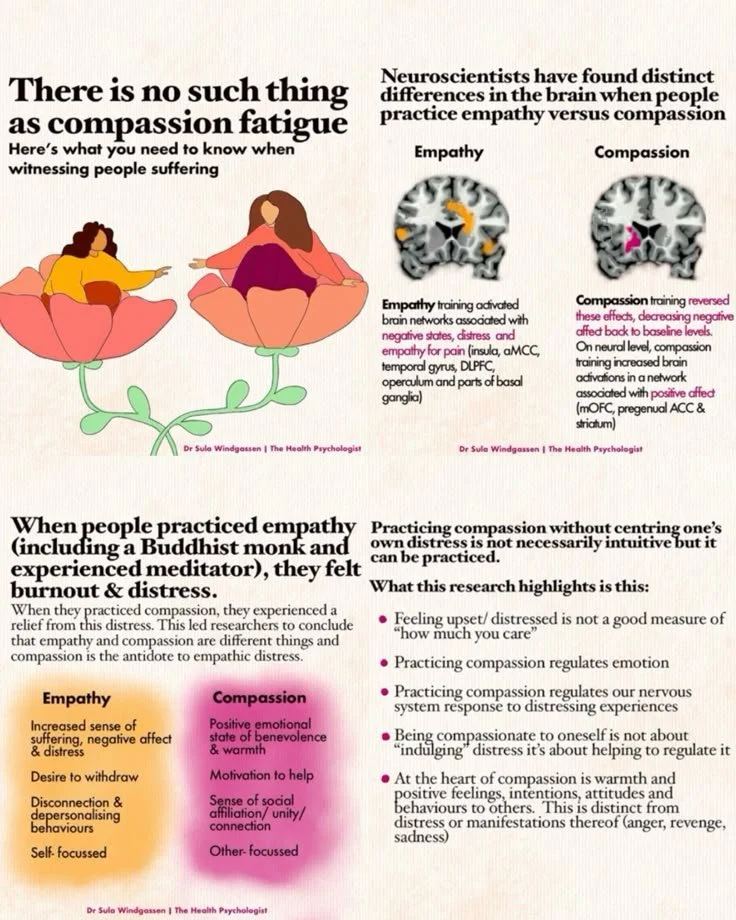Why “Compassion Fatigue” Isn’t What You Think — And What You Can Do About It
If you’ve ever felt emotionally drained from caring for others, you’ve likely heard the term compassion fatigue. But what if that term isn’t quite accurate? According to neuroscience and clinical research, what we’re actually experiencing isn’t the exhaustion of compassion—it’s the overwhelm of unregulated empathy.
At Restoration Counseling LLC, I work with caregivers, healthcare workers, therapists, teachers, and highly sensitive individuals who believe they are “burned out from caring too much.” But science tells us it’s not compassion that leads to distress—it’s unchecked empathy.
Empathy involves feeling another person’s pain as if it were your own. While this can deepen understanding, it can also lead to emotional overload, anxiety, and withdrawal. Brain scans show that empathy activates regions associated with pain and distress.
On the other hand, compassion—when practiced intentionally—activates areas of the brain tied to positive emotions, warmth, and motivation to help. Compassion allows you to care without becoming consumed. It fosters emotional resilience and sustains your ability to show up for others (and yourself) in a grounded, regulated way.
So if you're feeling overwhelmed, it’s not that your heart is too big—it may be that you’re stuck in an empathic loop without a path to regulated compassion.
Here’s what the research highlights:
Feeling distressed doesn’t measure how deeply you care
Compassion actually regulates your nervous system
You can learn to be compassionate without internalizing pain
The antidote to burnout isn’t less caring—it’s caring with intention and boundaries
This is the key difference we explore in therapy: how to shift from reactive empathy to responsive compassion, especially for those in caregiving roles.
If you’re experiencing chronic stress from caring for others, let’s talk. Together, we’ll develop tools to nurture others and yourself—without burning out.
📩 Schedule an appointment with Jessica at Restoration Counseling by emailing jessica@restorationcounselingdsm.com
You can care deeply and stay well. Let’s find that balance—starting now.
Photo Credit to Dr. Sule Windgassen


